Sport at the crossroads: Softball's culture of umpire respect
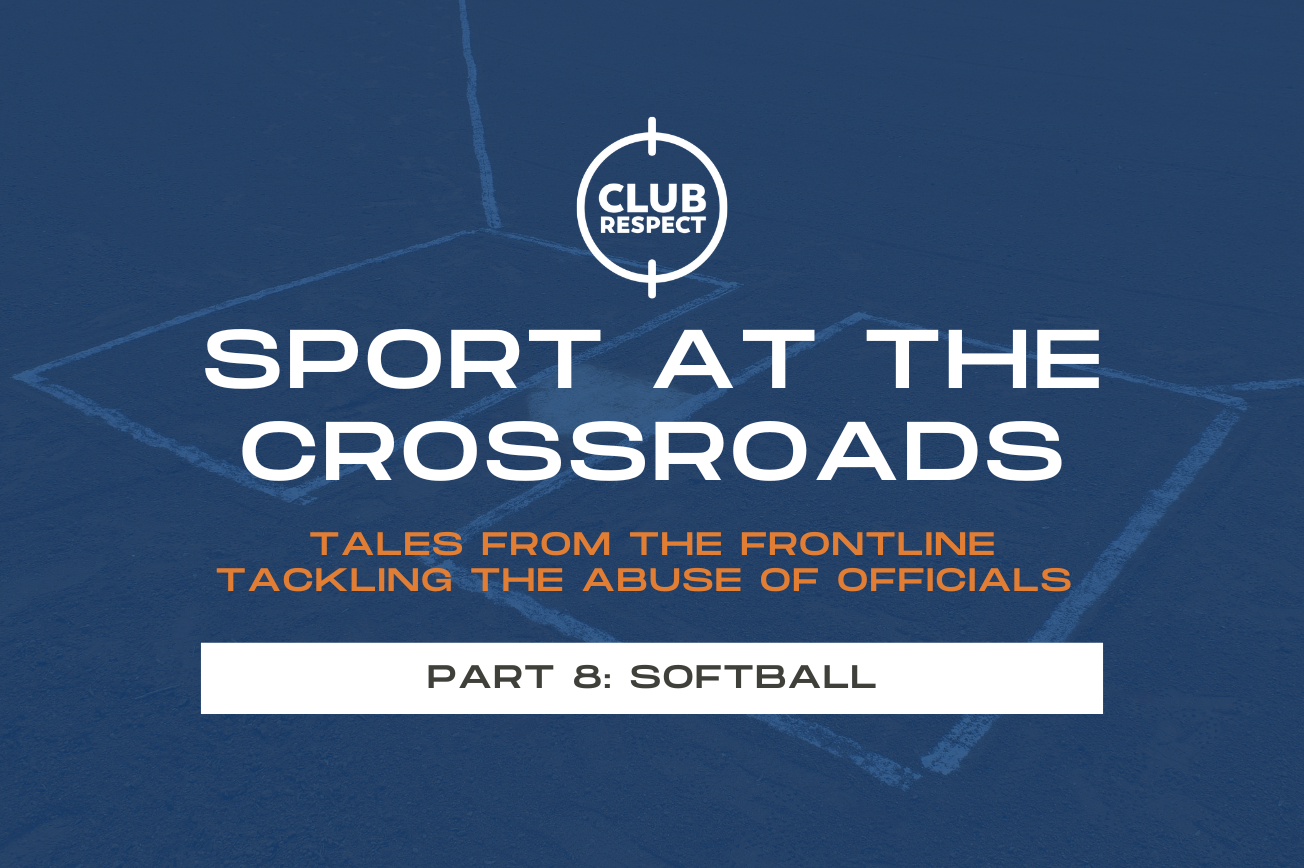
This is Part 8 of our ‘Sport at the crossroads’ series, exploring the way different sports codes and associations are tackling the abuse of officials.
Part 1: Football (Soccer)
Part 2: Rugby League
Part 3: Aussie Rules (AFL)
Part 4: Netball
Part 5: Rugby Union
Part 6: Basketball
Part 7: Cricket
Part 8: Softball
Tales from the frontline tackling the abuse of officials – Softball
When my youthful travels took me for a 3-year stint in Vancouver in Western Canada, part of my cultural immersion was to try some new things that could help me meet some Canadians in their natural habitat. One of those new frontiers was softball.
I had assumed my hand eye co-ordination would simply transfer from batting in cricket and with the ball much bigger than I was used to it should be easy to tee off.
It was a humbling experience and I was shown the folly assumption by ‘Grandad’, the local pitcher whose craftiness with the ball had me air swinging without joy and who later explained the finer points over a few beers.
Two things surprised me. Firstly, the amount of ways a pitcher could move the ball around at high speed and the second was the culture of umpire abuse that seemed so embedded in the culture that it seemed indistinguishable to baseball.
I wondered if this culture of aggressive confrontation had transplanted to Australian softball, an under the radar sport that periodically flashed to the spotlight for Olympic cameos and World Championships.
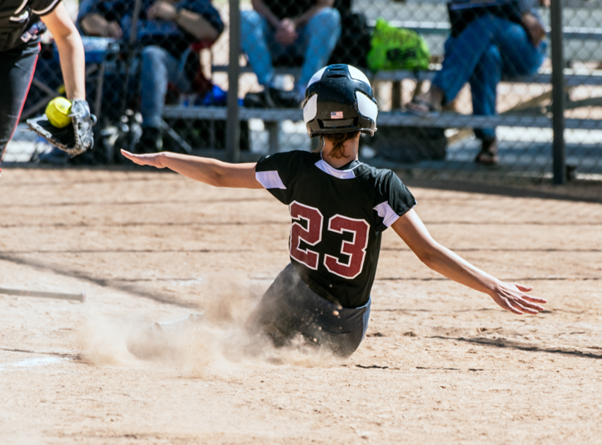
An action shot of a softball player sliding into home plate to score.
**
Kyira Cox’s rise to the Chief of Operations for national umpiring at Softball Australia has been more than a typical career trajectory – a journey marked by passion, resilience, and dedication to the sport.
“I got into umpiring because it was a club requirement, but I started to get an understanding for the rules, providing me with an advantage against some of the teams and players,”
“And I fell in love with it.” Kyira explains.
This initial compulsory obligation turned into a portal for Kyira to discover her niche within the sport. Her story reflects a progression from player to umpire, driven by a desire to “give back to the sport that has given me so many opportunities,” taking inspiration from witnessing her parents volunteering as officials in roller skating.
The pivotal moment in her career came in 2010, umpiring a game between ACT and Japan. “I felt real passion and drive and thought ‘this is where I belong’.” she recalls.
Although she had been good enough to make state teams as a player, her destiny was locked down in that moment, which gave her the belief to pursue umpiring seriously.
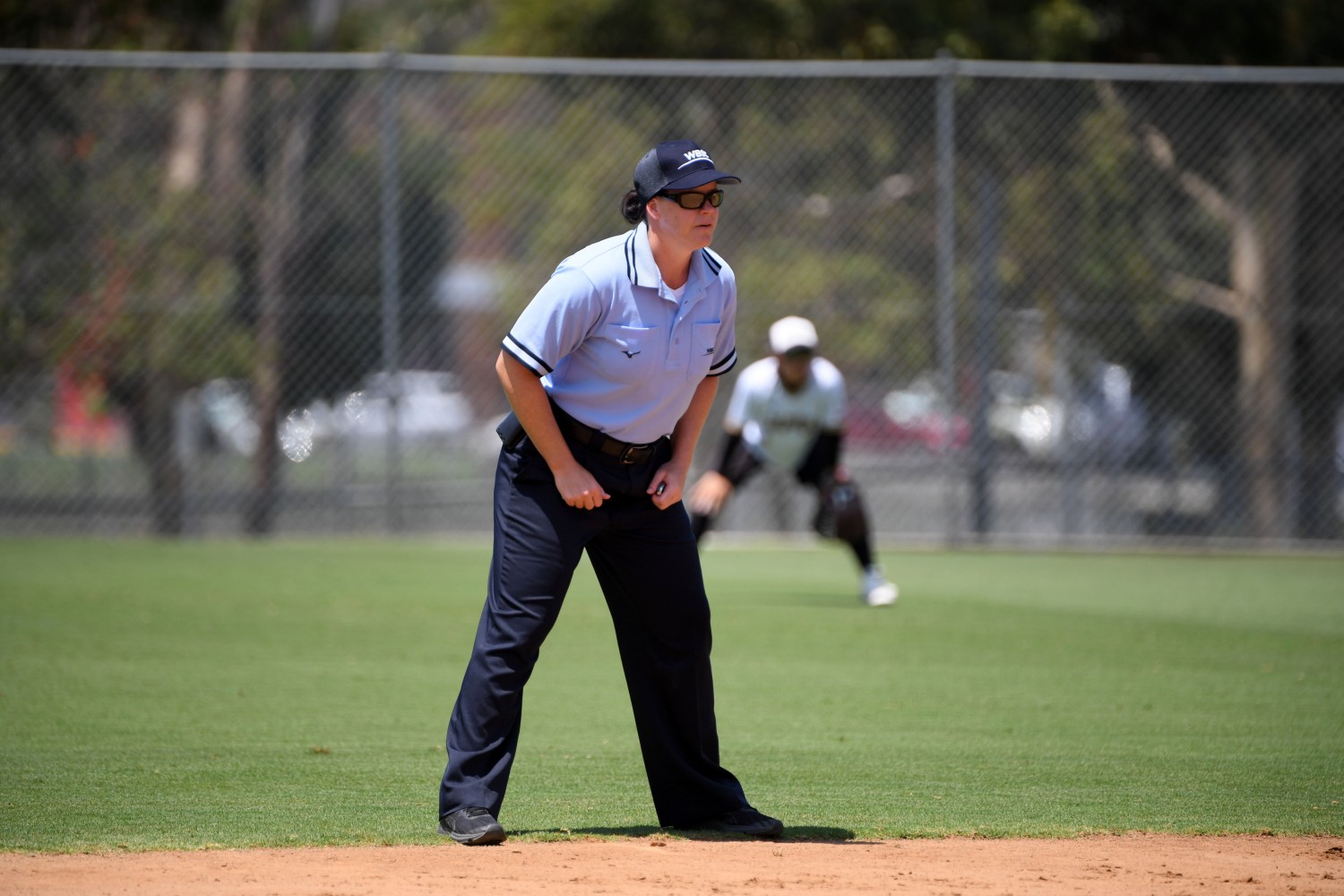
Kyira Cox officiating – Picture: Softball Australia website
Fuelled by a drive to learn and improve, she rose through the ranks achieving level 6 accreditation, the highest in Australia, and later, international recognition at World Championships and the Olympics.
She has now reached the veteran stage: “I’ve now done upwards of 100 international games including gold medal games at World Championships” she notes.
Kyira speaks candidly about the umpire churn rate in softball, noting its similarity to other sports where retaining talent is a constant struggle.
“If we attract younger kids to umpiring, and they’re reasonable players, we don’t keep them because they excel at playing,” she states.
This highlights a gap in the system where potential umpires opt for playing careers or other commitments like university or family, creating a void in skilled umpires who grow with the sport.
“So we do have a bit of a hole in the middle around that age because they’ve all gone off and had families but we hope to get them back when their kids start playing again and they start to return back to the softball fields for that sense of community.” Kyira explains.
“We’ve got people in their 80s still umpiring nationals.”
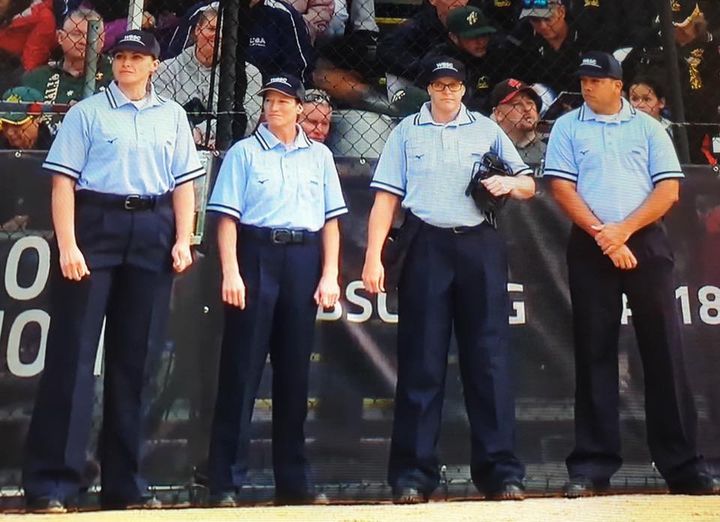
Kyira Cox OAM, second from left. Picture Softball Australia, Facebook
Whilst softball tends not to lose umpires to abuse there is still a challenge in managing it, particularly at lower levels.
“Most abuse happens at grassroots level where volunteers do their best and the white line fever of players rears its ugly head now and again.” Kyira says.
To combat this, Softball Australia has implemented a zero-tolerance policy at national and state levels, with strict procedures to protect umpires and maintain a respectful environment.
A program run by Softball Australia involves umpires in training wearing a different colour uniform to the accredited umpires.
This has been a simple but effective solution according to Kyira: “It helps identify to people that these umpires are in training and to give them respect so they can develop and grow and learn for our sport.”

Softball Australia adopting the National Integrity Framework established by Sport Integrity Australia. Picture: Softball Australia, X
In her seven years in the role she has only seen one bad case of umpire abuse which involved a coach abusing a plate umpire which resulted in an 18 month ban for the offending coach.
“In my 7 years in my role – this has been the only major incident and I was there commentating on the game and it was severe – the worst I had ever witnessed, especially from a seasoned coach to a younger generation umpire.” She recalls.
“Because of that we are now quicker to eject an abusive coach and call out the behaviour – we are much stricter.”
Unlike in America, where softball is closely linked to baseball culture, Kyira points out that in Australia, the relationship is much less intertwined, reducing the direct influence of some of baseball’s norms on softball.
“Softball is a very ‘old soul culture’ here…we stamp out any unwanted behaviour and bullying and abusive treatment pretty quickly.” she asserts.

Softball’s ‘Old Soul Culture’ helps to preserve a respect in Australian softball.
This cultural distinction helps maintain a unique standard and expectation within Australian softball.
Controversy often arises from discrepancies in umpiring standards, especially as declining participation impacts the availability of experienced umpires.
“With a decline in participation numbers, there is a decline in umpiring numbers, and therefore, potentially, there’s a decline in competency levels.” Kyira notes.
This situation sometimes results in less experienced umpires officiating at higher levels than they are prepared for, leading to more contested calls and potential controversy.
Parental behaviour at games can also significantly impact and sometimes poison the atmosphere.
Kyira’s experience suggests that the attitude of players and coaches often mirrors that of their supporters: “If you pinpoint the ugly player, you can often pinpoint the ugly parent in the stand.”
To manage disruptive spectators, softball officials don’t confront the crowd directly but work through coaches and use tournament chiefs or technical delegates to maintain control.
Addressing the decline in umpire numbers, Kyira believes making umpiring roles more financially attractive is essential.
She compares the compensation in softball to better-funded sports, suggesting that enhanced professional development programs and better pay could attract and retain more umpires.
Citing as an example a friend of hers who has returned to softball from officiating in rugby league she says: “More than the money, he went through an amazing professional development program that sports like ours can’t afford to run.”
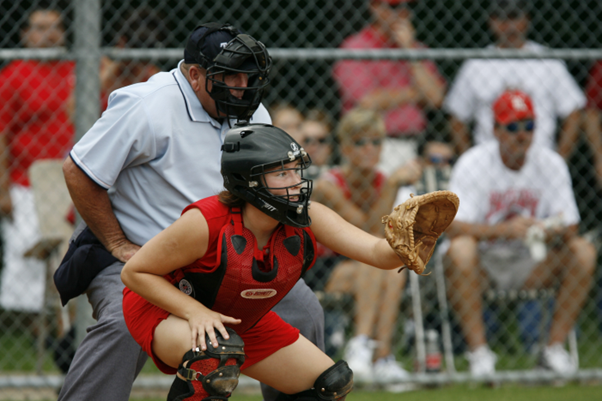
The catcher ready with their mitt, prepared for the next play.
**
Kerry Franklin’s softball story is a testament to her lifelong dedication and passion for the sport.
With 45 years under her belt and as a WBSC certified Level 8 international umpire, her experiences range from local leagues to nationals to the grand stage of the 2000 Sydney Olympics.
Her deep involvement in training umpires for Softball Victoria underscores her commitment not just to the game but to ensuring future growth.
From a young player in the under-15 Frankston Association team to an international umpire, Kerry’s journey began with a common pathway – player to umpire.
“I used to play… and part of the deal was that we have to umpire in the under-12 division. For me as a player learning how to umpire, certainly improved my playing.”
This early start not only enhanced her playing skills but planted the seeds for her future career in umpiring.
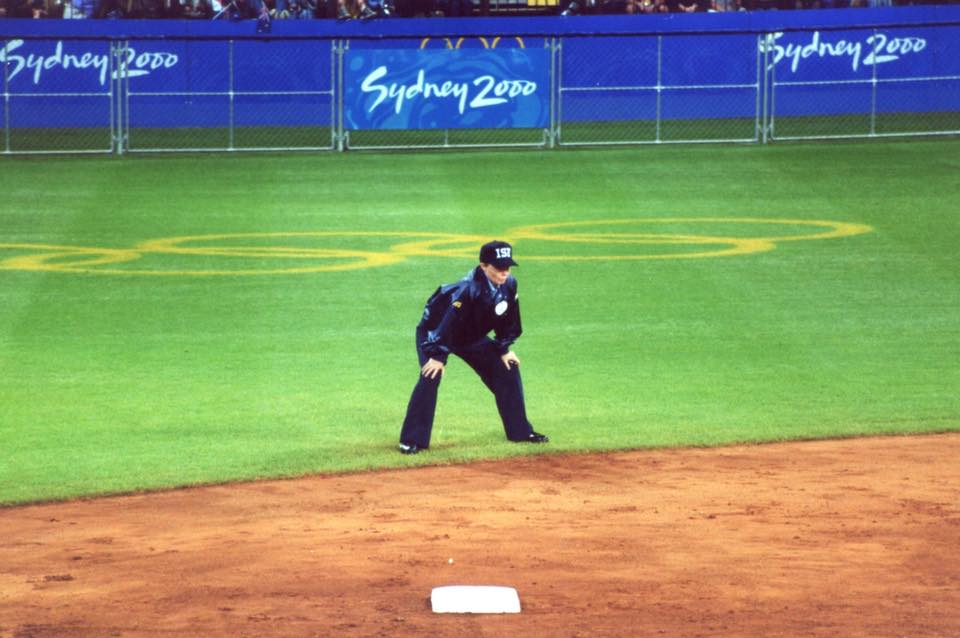
Kerry Franklin at the Sydney Olympics 2000. Picture Softball Australia
Kerry observes the challenges faced in retaining umpires within Victoria: “It’s hard to attract umpires… Moving up through the ranks it declines but we certainly provide a lot of training – as much as we possibly can for those that want to go further.”
Her role involves running courses that empower umpires with skills not just in rule enforcement but crucially in communication with players and coaches.
Over her career, Kerry has noticed distinct dynamics in how male players interact with umpires based on gender: “I think they treat female umpires better than they actually treat the men because of testosterone levels.”
Despite her petite stature, she commands respect on the field, a product of her assertive presence and deep understanding of the game:
“I’ve never had an issue with any lack of respect from males. I’ll step up and say ‘stop it’ and being only 5 ft tall they look down at me and say ‘Oh ok.’”
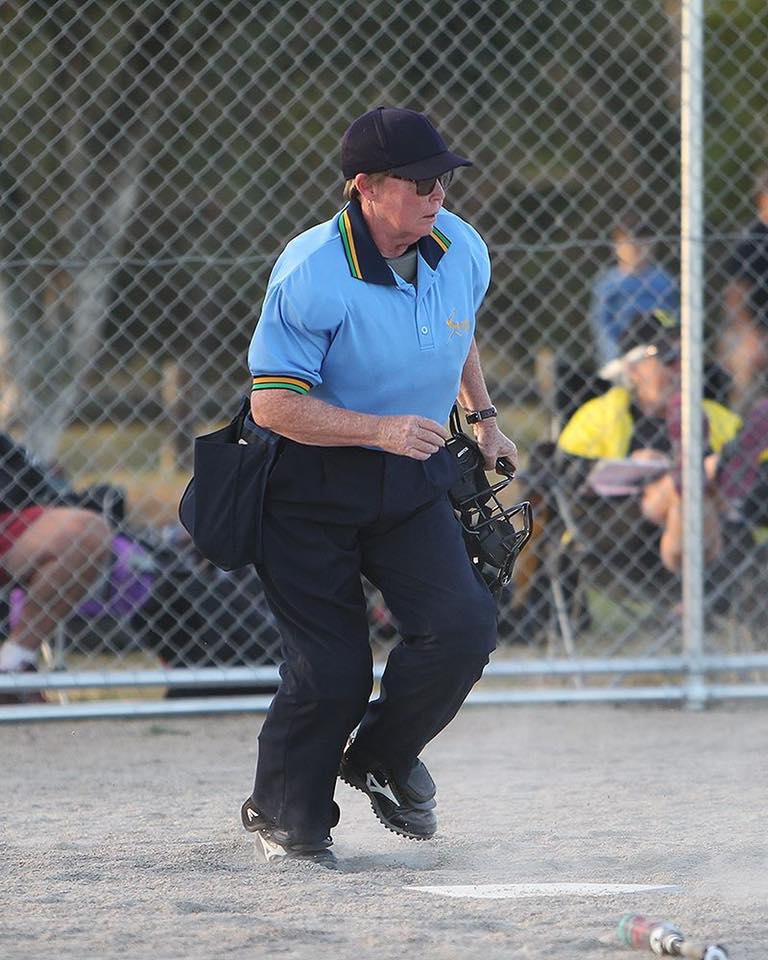
Kerry Franklin, a commanding force. Picture: Softball Australia
Handling unruly spectators is part of the landscape in sports, and Kerry’s approach is to hold the team’s leadership accountable:
“We make the teams responsible for the spectators… if your spectators become unruly, then it’s on you.”
This method of management ensures that coaches maintain control over their supporters, preserving decorum during games.
Kerry’s experience at the 2000 Sydney Olympics highlights her expertise and the respect she commands.
She recounts a particular incident where an international head coach tried to exploit a rule, to which she firmly responded, “that’s not going to happen,” and the game continued immediately.
Her philosophy on rule application is both practical and thoughtful: “It’s not about all rules that you can apply but how you need to apply them… If we’re going to apply every single rule every single time, you would never get out there on the park.”
The skill set for an umpire, according to Kerry, goes beyond just knowing the rules.
“It’s about being a student of the game… not just learn about the rules but learn about why the rules are out there and knowing when to apply them.”
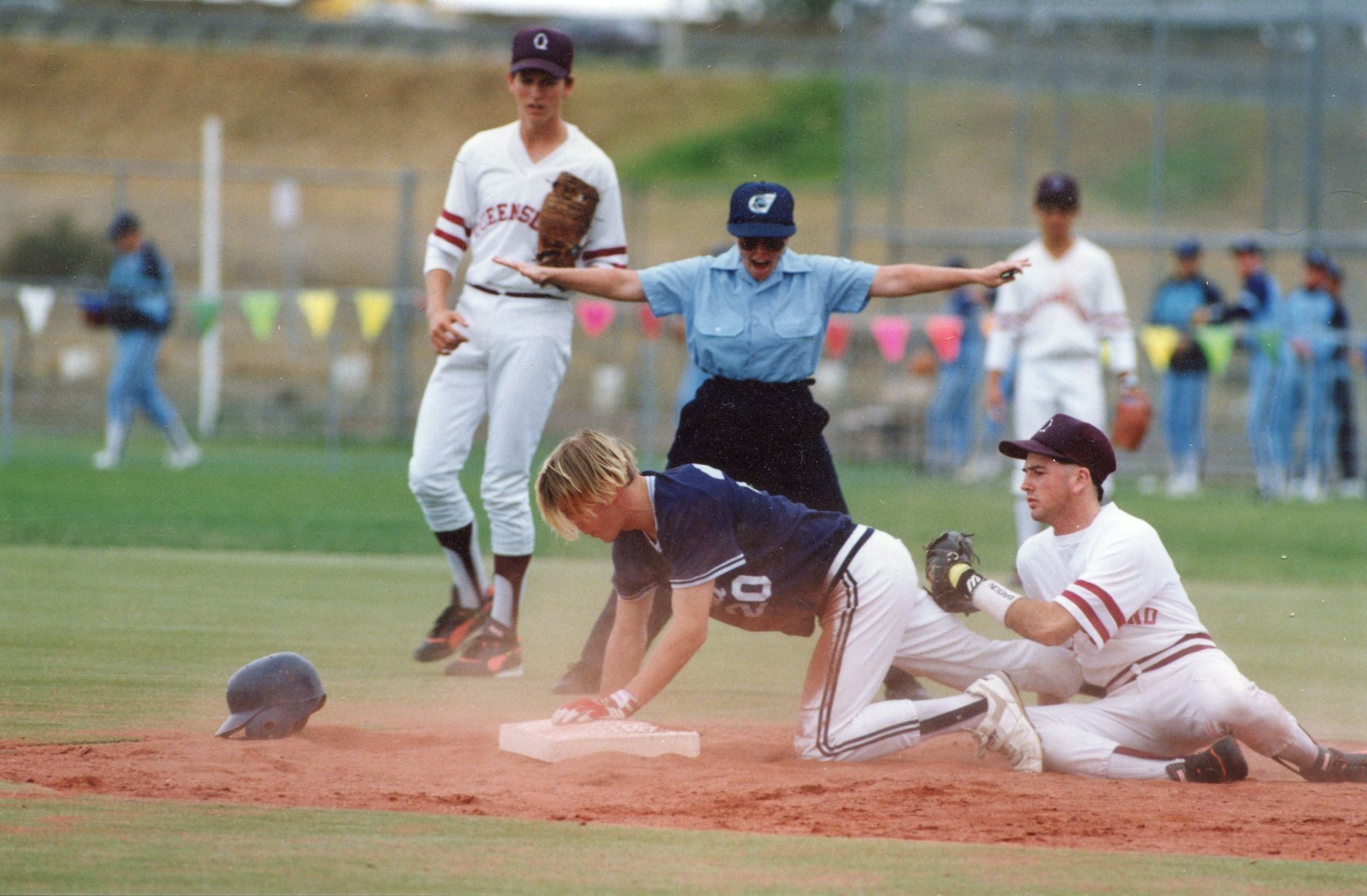
Kerry Franklin making a tight call. Picture: Softball Victoria Umpires
**
Kevin Tannebring has been a defining presence in Australian softball umpiring for over four decades. With a long-standing role as both a Premier League softball umpire in Adelaide and a dedicated SANFL APY Lands Softball Ambassador, his experiences and insights offer a unique perspective into the nuances and demands of the sport.
His journey from an SANFL football umpire to a respected figure in softball reflects a mix of luck, adaptability and his deep commitment to being professional in any sport he is involved in.
Kevin’s transition to softball began somewhat serendipitously:
“I umpired SANFL (South Australian National Football League) football for 19 years and my three girls all decided to play softball. One day a softball umpire didn’t turn up and they said, ‘You’re a football umpire but it doesn’t matter, we need an umpire.’”
“So I started umpiring softball. My girls have all finished playing now and I’m still here,” he recalls.
This unexpected career pivot marked the beginning of a 40 year elite umpiring career in softball, fuelled by a familial and community connection to the sport.
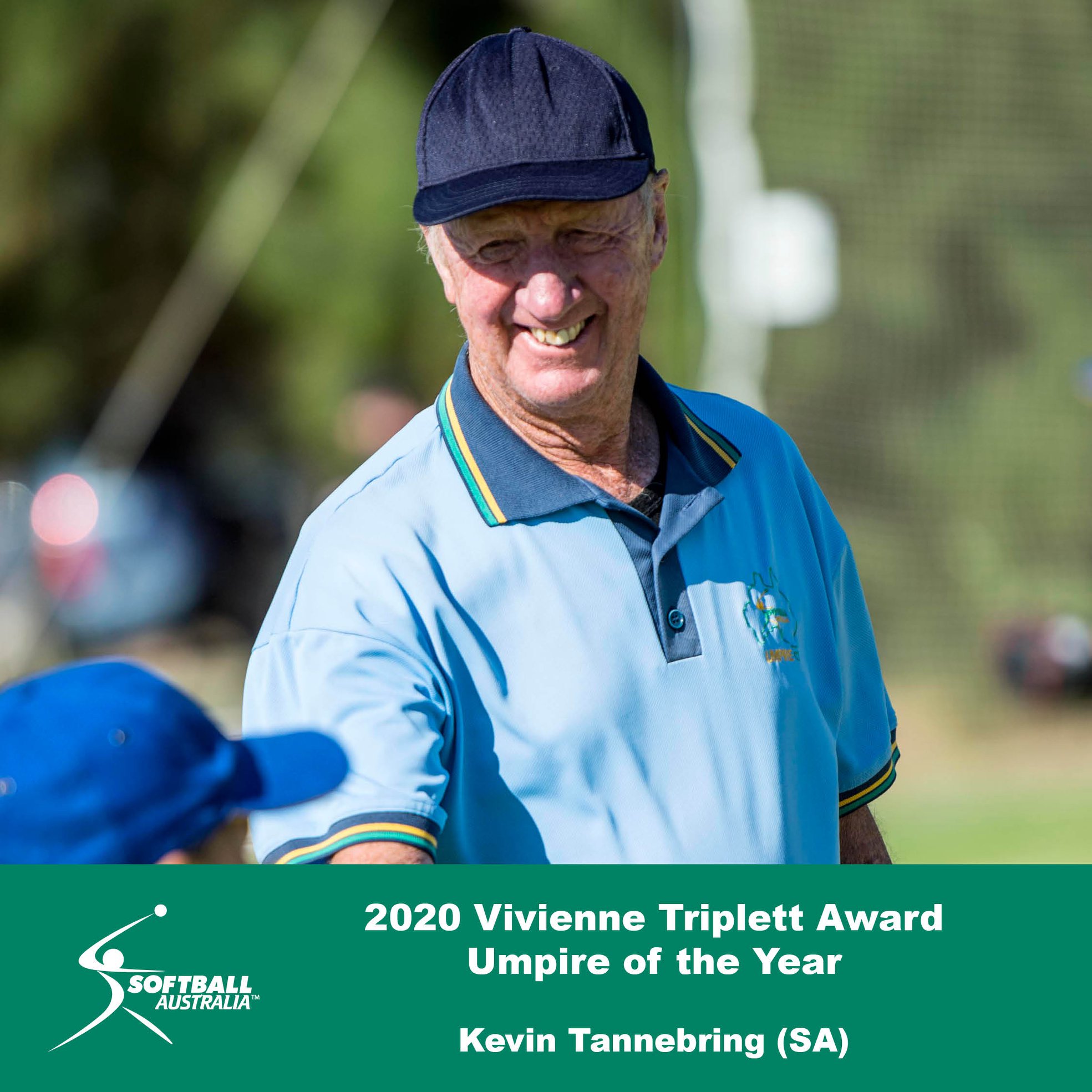
Kevin Tannebring announced as winner of the Vivienne Triplett Umpire of the Year. Picture: Softball Australia, Facebook.
Contrary to popular belief, Kevin sees aggression in softball as not entirely negative, especially within the men’s game which feeds on emotional intensity and competitiveness.
“Aggression in Softball is not bad if you’re talking metropolitan leagues… Men’s softball is a little bit different, they’re more aggressive,”
“And nothing wrong with that; the game needs some… Every sport needs a bit of aggression, every now and then in the right controlled way.” he explains.
According to Kevin, at the heart of umpiring competently is the dual ability to manage people and know the rules intimately.
“The biggest attribute any umpire needs is people management. You’ve got to be able to manage people and earn respect. You can’t expect to get respect if you don’t give it.” he states.
Whilst physical alertness and an understanding of the game are crucial, for Kevin, the essence of great umpiring lies in relationship management and integrity.
“A great softball umpire… has got to adjudicate and it’s not just a matter of standing there and things happen in front of you.” he says.
He also notes the challenges faced when umpiring at high speeds, particularly in men’s games where pitches can reach up to 135 kilometres per hour.

Kevin Tannebring (left) in discussion with Umpires. Picture: Softball South Australia Umpires
Kevin maintains a pragmatic and somewhat empathetic view towards vocal spectators, viewing their enthusiasm as a natural and beneficial part of the sport.
“I don’t worry about the spectators. They pay their money to come and watch and the game’s better for a bit of vocal stuff from outside the fence as long as it’s general encouragement.” he remarks.
However, a significant concern for him is the shortage of high-level umpires, particularly those transitioning from playing to umpiring. “You don’t get enough players finishing playing and then coming and umpiring. It’s hard to draw them in,” he notes, highlighting a gap that affects the quality and availability of experienced umpires.
Over the years, Kevin has observed a notable decline in coach aggression, which he views as a positive trend towards more respectful interactions.
“Coaches used to be fairly aggressive and for some of them, that was only to gain an advantage. Over the last 5 years, coaches are not like they used to be.” he has observed.
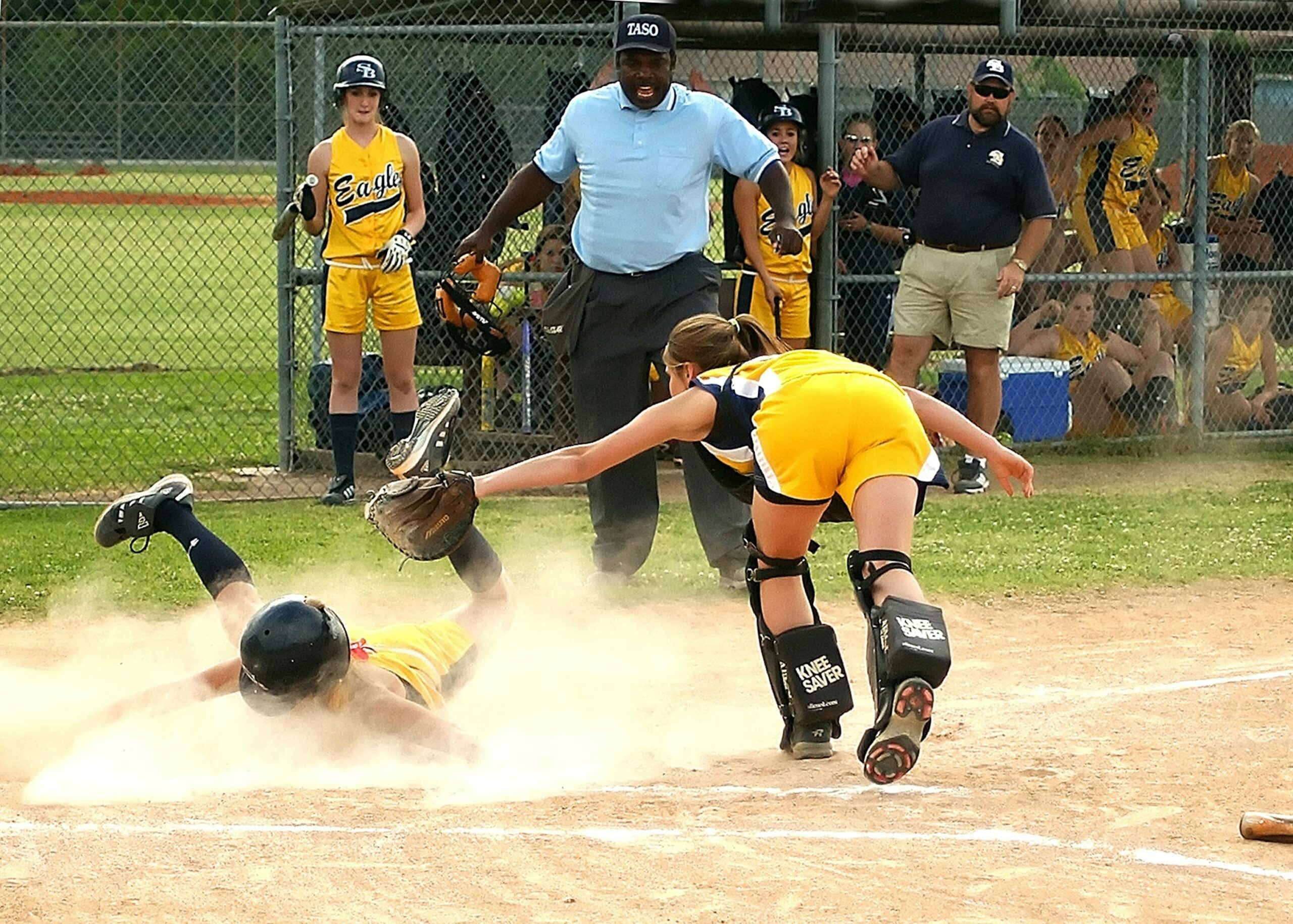
Softball umpiring requires intense concentration and split second decision making
**
Softball in Australia is conducted in an atmosphere of respect and fairness. Whilst it does have incidents of abuse, they tend to be isolated and not a central part of the culture and in the most part, self-managed through clear and respectful communication
The spirit of softball is alive and well, led by umpires like Kerry, Kyira and Kevin whose positive values, respect and professionalism have created a respectful sport that others can learn from.
Join the Club Respect mailing list
Read Next:
Part 1: Football (Soccer)
Part 2: Rugby League
Part 3: Aussie Rules (AFL)
Part 4: Netball
Part 5: Rugby Union
Part 6: Basketball
Part 7: Cricket
Part 8: Softball
Also by Patrick Skene:
Feature article: Sport’s ugly blind spot – abuse of officials


Patrick is a founder of Cultural Pulse, a leading multicultural marketing and engagement agency that has worked for the past 15 years on sports participation and fan engagement programs for over 100 communities. He is an author and both of his books ‘The Big O, The Life & Times of Olsen Filipaina‘ and ‘Celestial Footy – The Story of Chinese Aussie Rules‘ have gone into reprint. As a storyteller, his stories on the intersection of sport, history and culture have been published by The Guardian Australia, The Age, the Sydney Morning Herald, The Australian, The Daily Telegraph and The Australian Financial Review. He is passionate about celebrating the role of match officials in sport and is currently the proud coach of the Rockdale Raiders Under 6 Intermediate mixed football team.
Contact Patrick on twitter or LinkedIn